Test our studyfinder
We can tell you a lot - but we would like to tell you more personally. Or you can test the course finder yourself.


Sonja is 19 years old, a prospective high school graduate and doesn't really know what she wants to do the rest of her life. But that is not her only problem.
Soon she has her - despite all her efforts not quite perfect - A-levels in her pocket and she slowly starts to think about what she should do best now after such a long time at school. Because she feels that all her classmates are studying, Sonja also thinks about whether there is a suitable course of study for her. And like all young people looking for an answer, she simply asks Google.
Unfortunately, the whole thing is not as easy as she had imagined and Sonja soon realizes that a long search with many hurdles is coming up.
Because Sonja doesn't know what she wants to study, she decides to start with one of the most popular courses of study and to find out what is involved in such a course of study. Sonja's first Google search for "Business Studies" also delivers results as quickly as she wants - over 21,000,000.
Sonja lives in Munich, so for her next attempt she decides to search for "BWL München", but even these 416,000 results she can't work through them all. And maybe she wants to move for her studies. But one thing at a time. So she starts at the top, because that seems to be the most suitable result for her...
So Sonja opens the top result and lands on the start page of a university. After a long search, she also finds the subpage for the business studies course she is looking for, and there she finds vast amounts of information that she can't really arrange in any order. But what she takes with her is that with her "only approximately" perfect A-levels she might not be able to study everything she wants to. On the website she will find a note about possible admission restrictions.
"A comparison can't hurt" Sonja thinks and opens the second and third search result. And also here Sonja finds a lot of information after clicks over clicks - but completely different than before.
Sonja quickly realizes that the contents of the individual websites are very different from each other and it is difficult for her to find the information she is looking for on each page. So how is she ever going to compare the courses of study with each other?
However, there are job portals, so why shouldn't there also be study programme portals? Sonja lands on studieren.de after another Google search and finds again a lot of text and even structured information that reappears with every study course. The only problem is that the websites that Sonja has visited before do not appear here anymore and she forgets all previous colleges and universities again.
Slowly Sonja is starting to doubt whether a course of studies is really the right one for her - how is she supposed to manage her studies if she can't even find a suitable course of studies...

Paul is in his late 30s and works at a major university in the communications and marketing department. And as a member of this department, it is his job, among many others, to make sure that every year enough students fill the courses.
With years of experience in his job, Paul knows exactly how to reach out to new students through many different channels and media. So here we go again, a new semester is about to start - old courses need to be updated and maybe even new ones need to be published.
So Paul gets to work - like every year or actually like around the year. As a good co-worker, he has of course painstakingly collected all relevant information about the courses of study and described it editorially in the somehow much too complicated "Content Management System" of the website to the best of his knowledge.
However, Paul has been doing this for many years and of course the information and the structure of the individual courses of study always differ a little bit. But this is quite normal, who remembers exactly how he did something last year.
But it gets even more tricky. His colleague Beate also maintains the information about the courses of studies for a faculty and she has completely different ideas about the "right" structure of a course of studies than Paul. Paul likes it structured and relies on enumerations and lists, whereas Beate wants to describe everything nicely in a detailed continuous text - after all, the students are supposed to be picked up emotionally.
So if even Paul and Beate don't agree within the university, it's easy to guess how big the differences between the many universities and colleges are.
But Paul is far from finished with his work. Just like Sonja, Paul has long noticed that many prospective students look for information on comparison portals. And in order to be found there and address potential students, Paul has to copy and paste everything again.
And after all this work the son of the president finds a spelling mistake and everything starts all over again...
Studyfinder:

Sonja and Paul actually want the same thing: studying should become easier. Sonja would like to find the information she is looking for about study courses quickly and clearly. Paul has exactly this information and would like to give it to Sonja - in the most uncomplicated and reusable way possible. The only thing Paul is missing is the tools.
Together with the Technical University of Munich, we have initially developed such a tool - the study course finder. And with every new college and university this solution has grown.

Technically, we have opted for a "nutshell principle". A basic extension - the nut - provides all necessary basic information and represents a basis of data. These are required for filter and listing criteria, but also for interfaces. An Extended-Extension - the shell - extends the Basic-Extension with individual information for each university or college.
This type of implementation brings many advantages. The Basic-Extension gets richer with every new college or university and can be easily updated independently of the individual information. This way, the colleges and universities benefit from the knowledge among each other and at the same time can distinguish themselves from each other through the additional information.
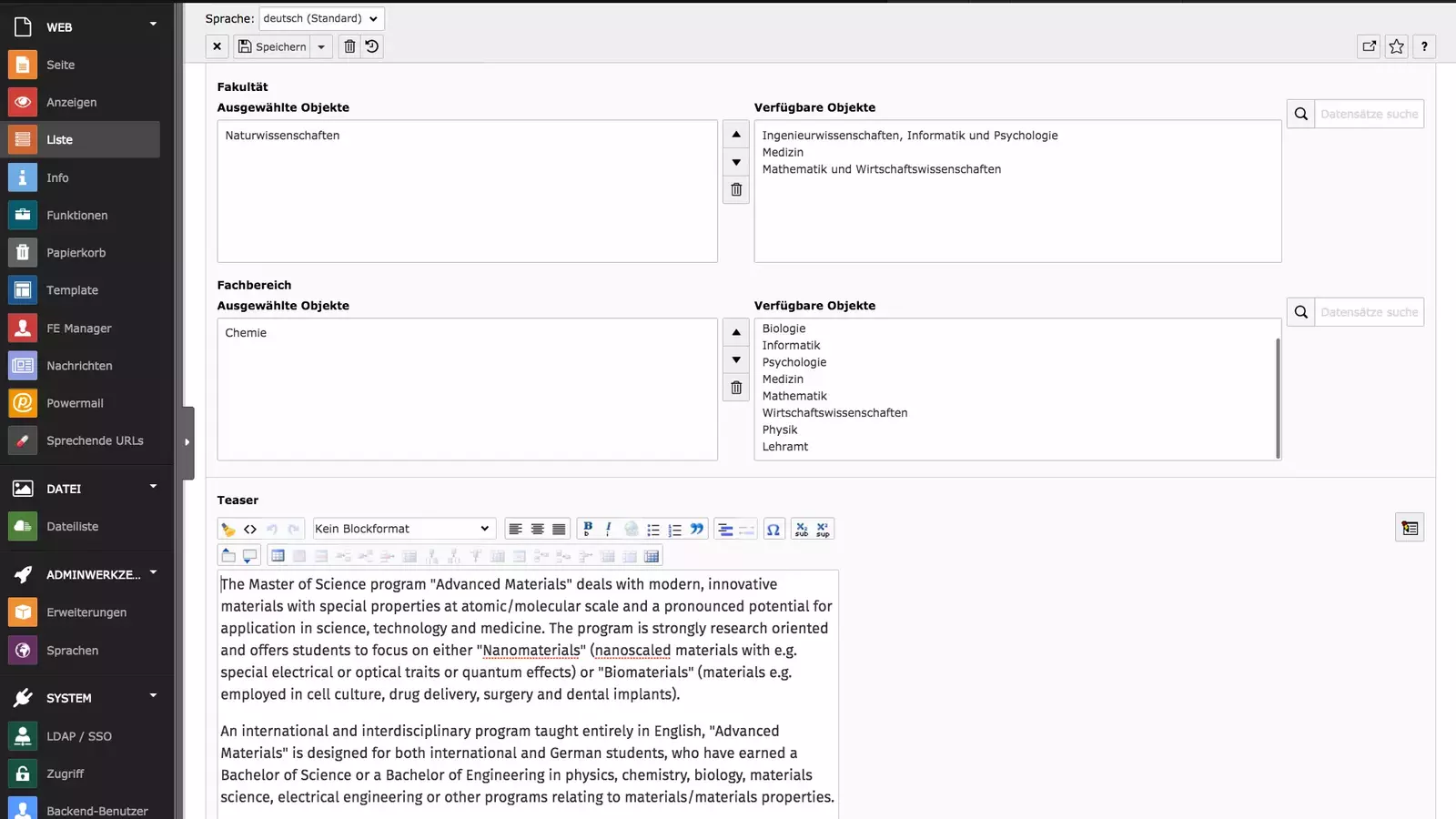
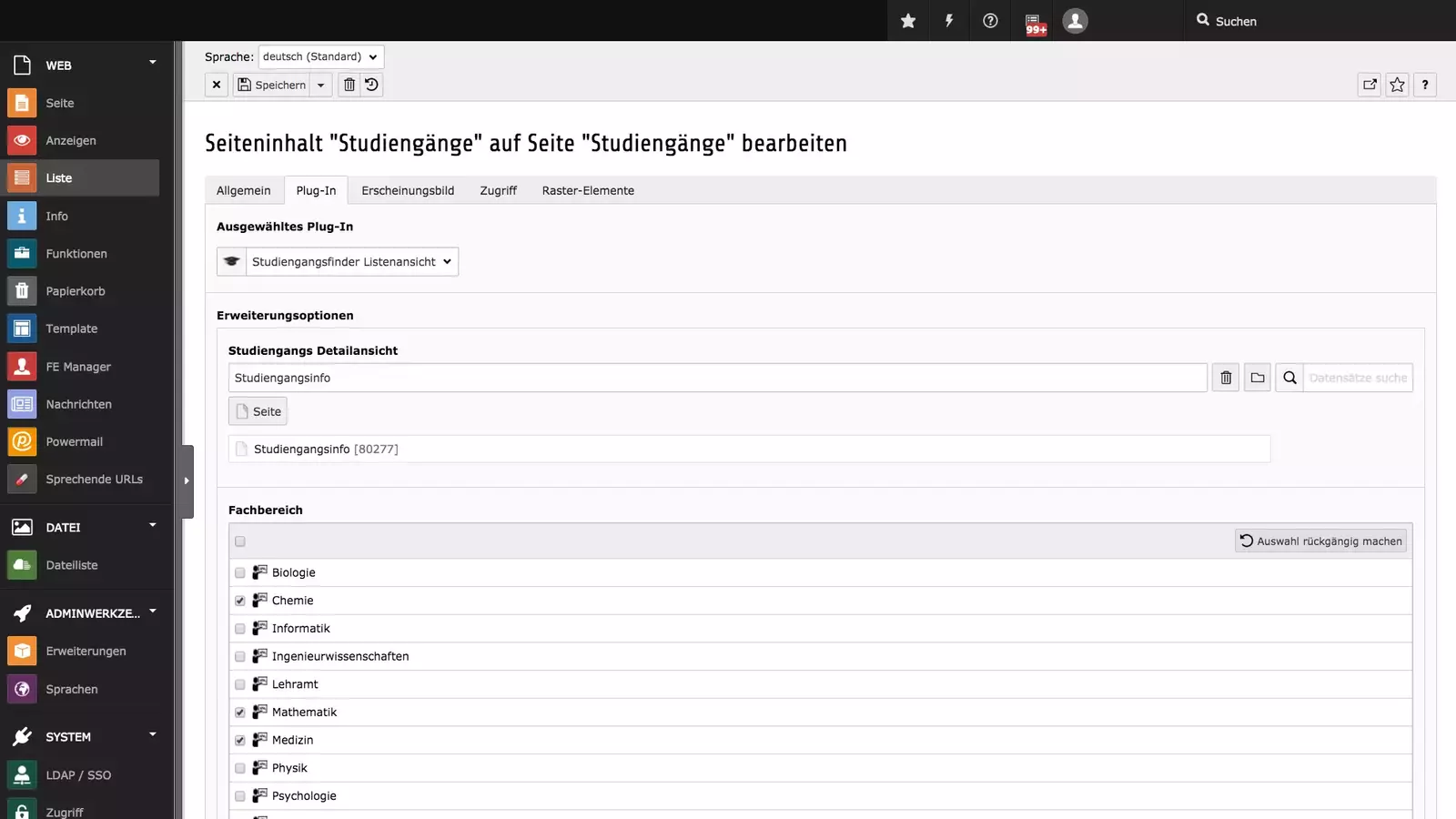
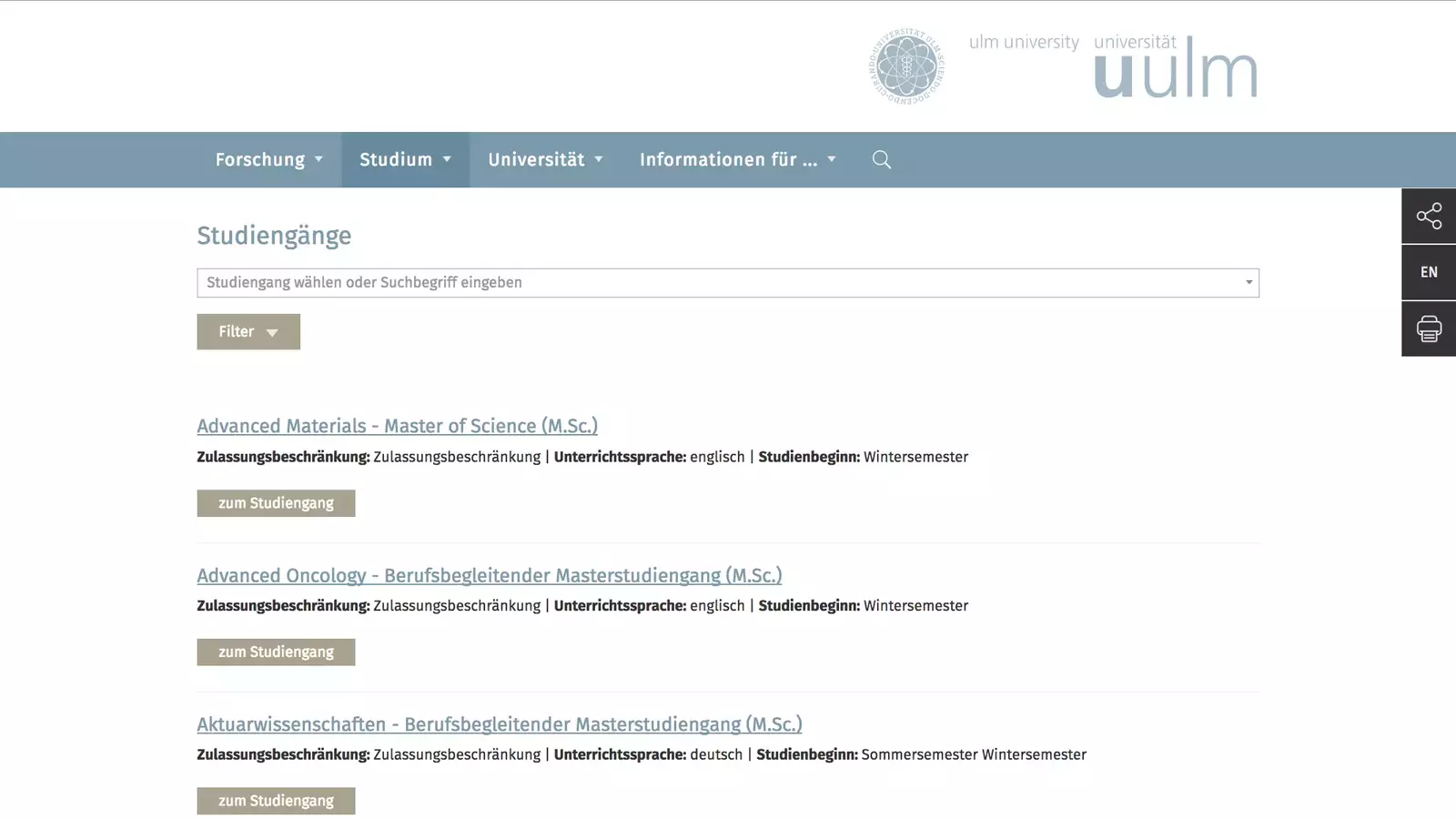
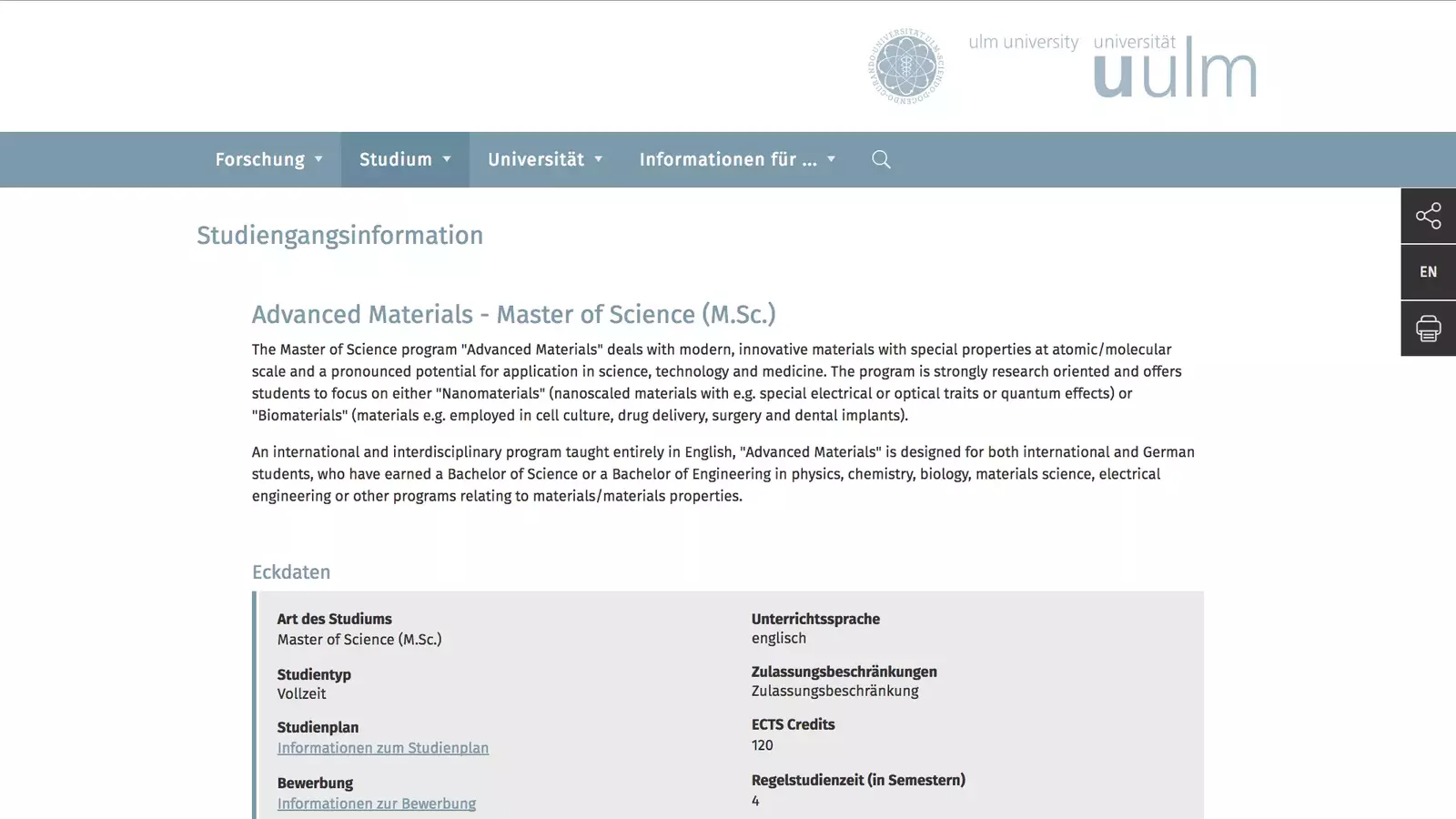
We can tell you a lot - but we would like to tell you more personally. Or you can test the course finder yourself.
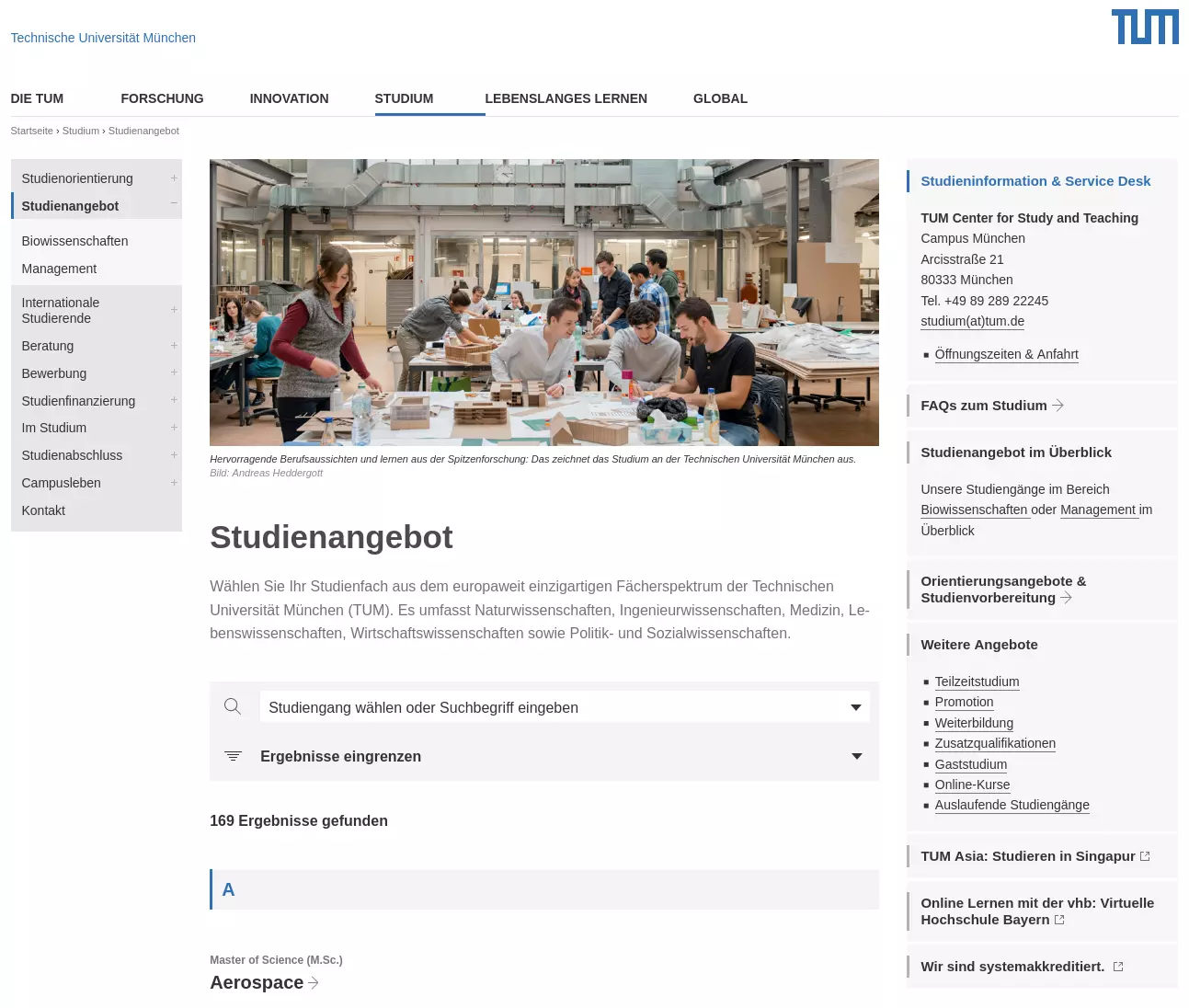
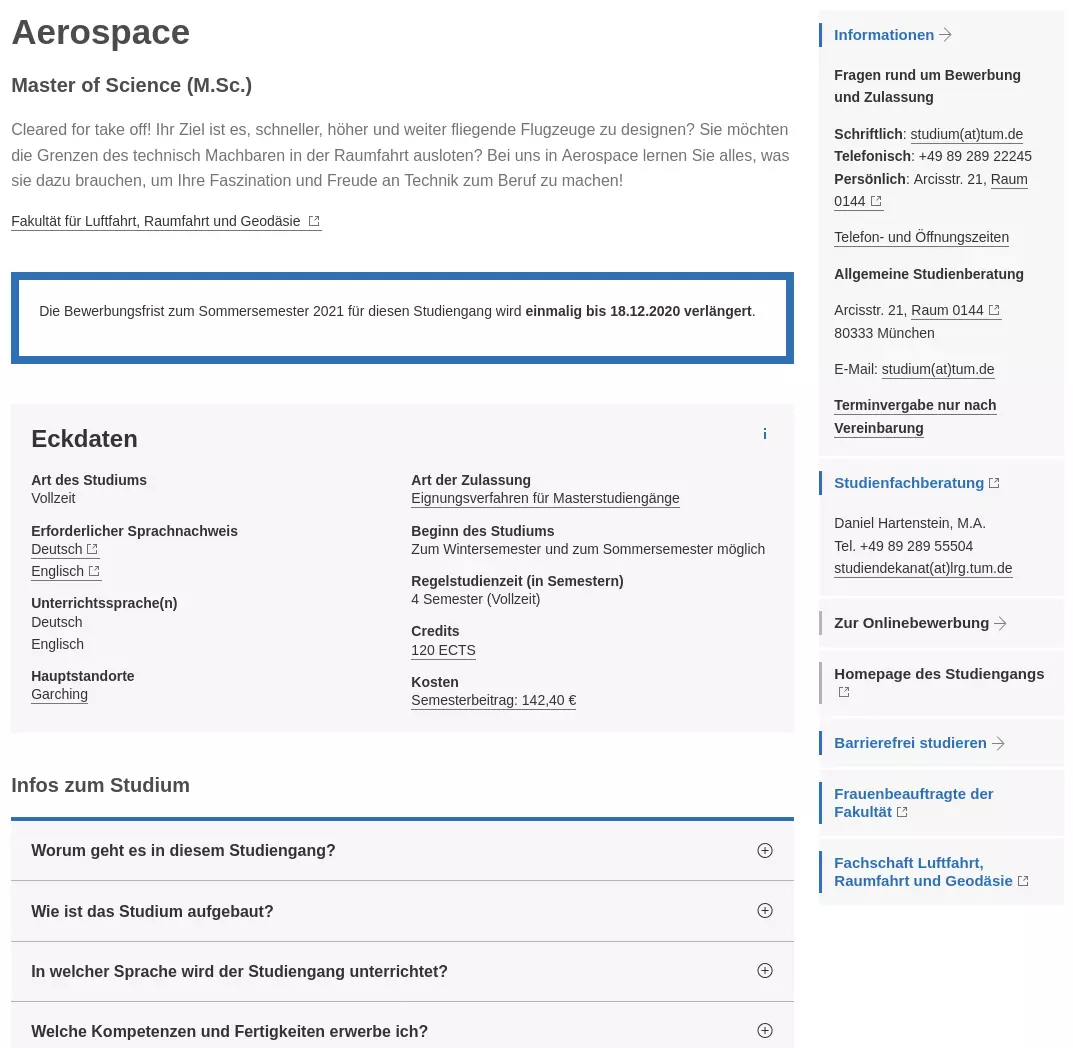
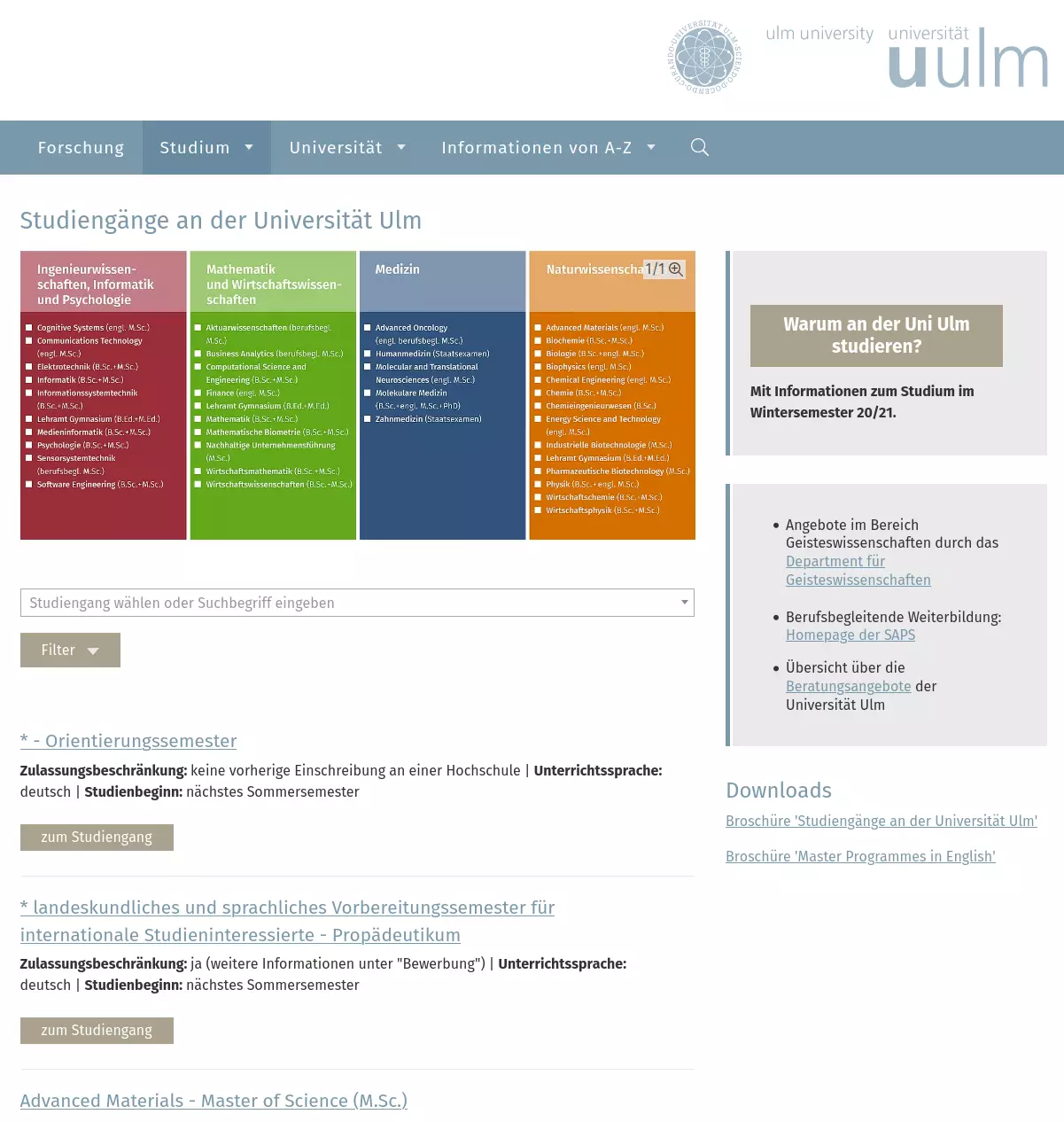
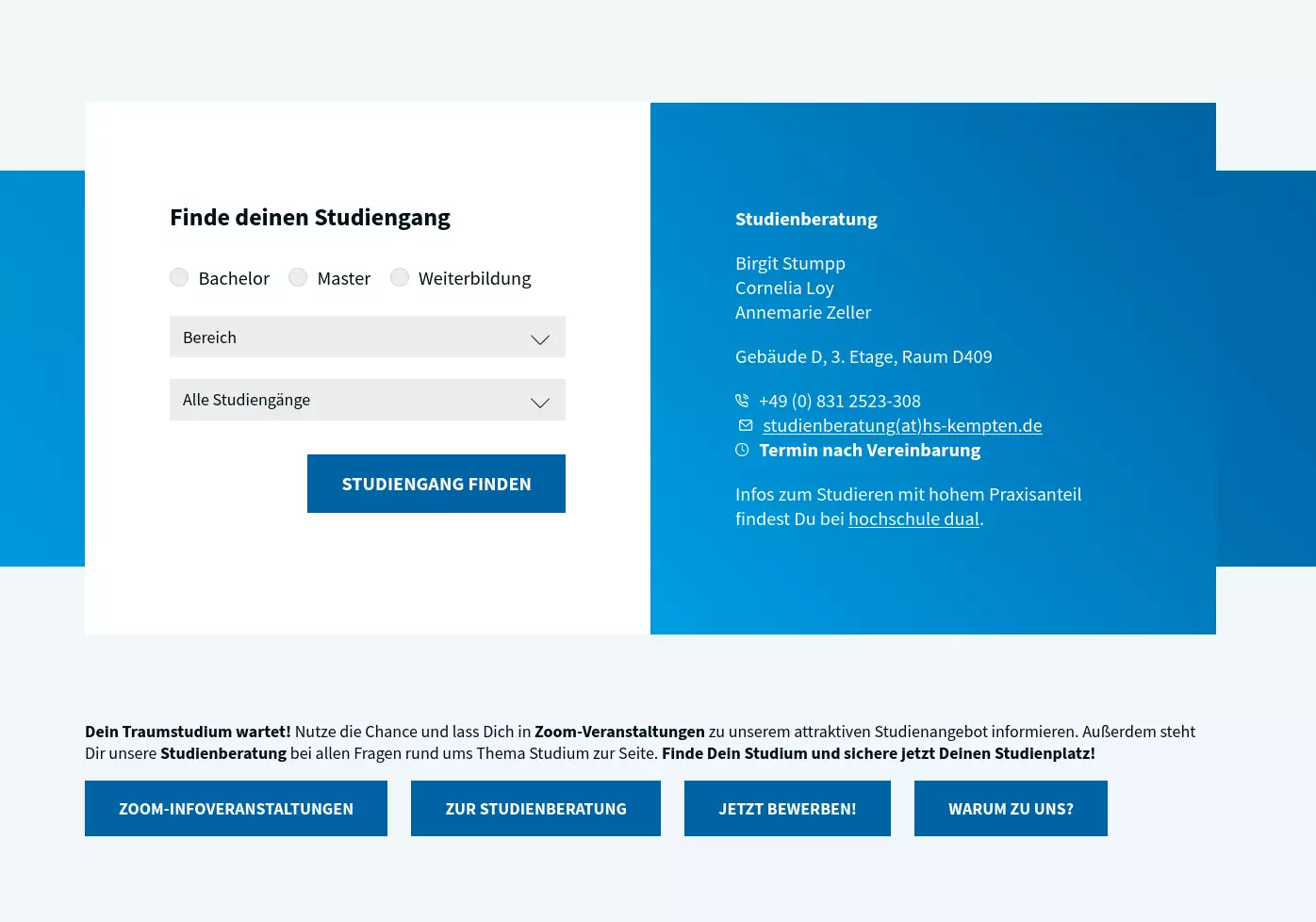
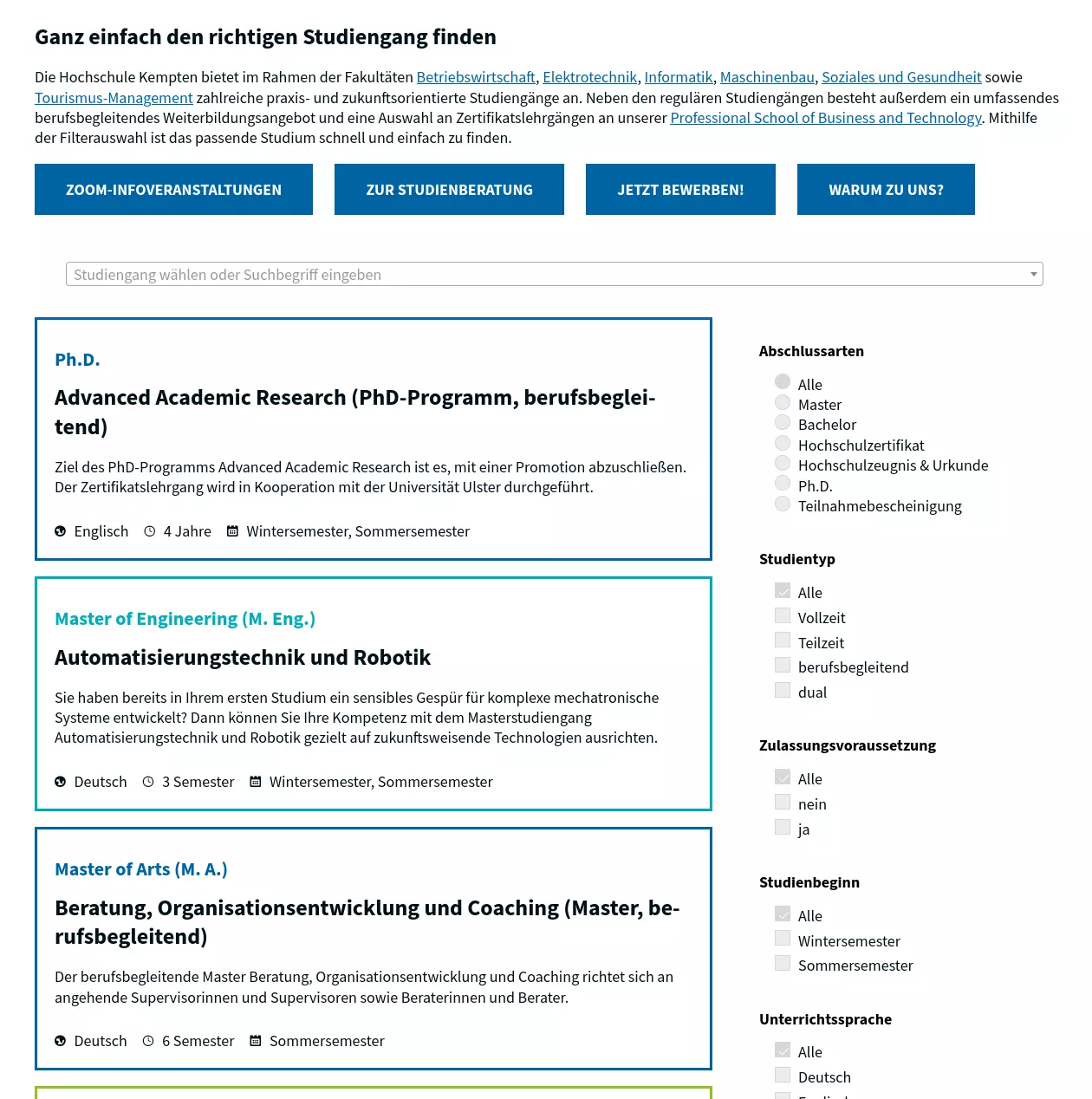
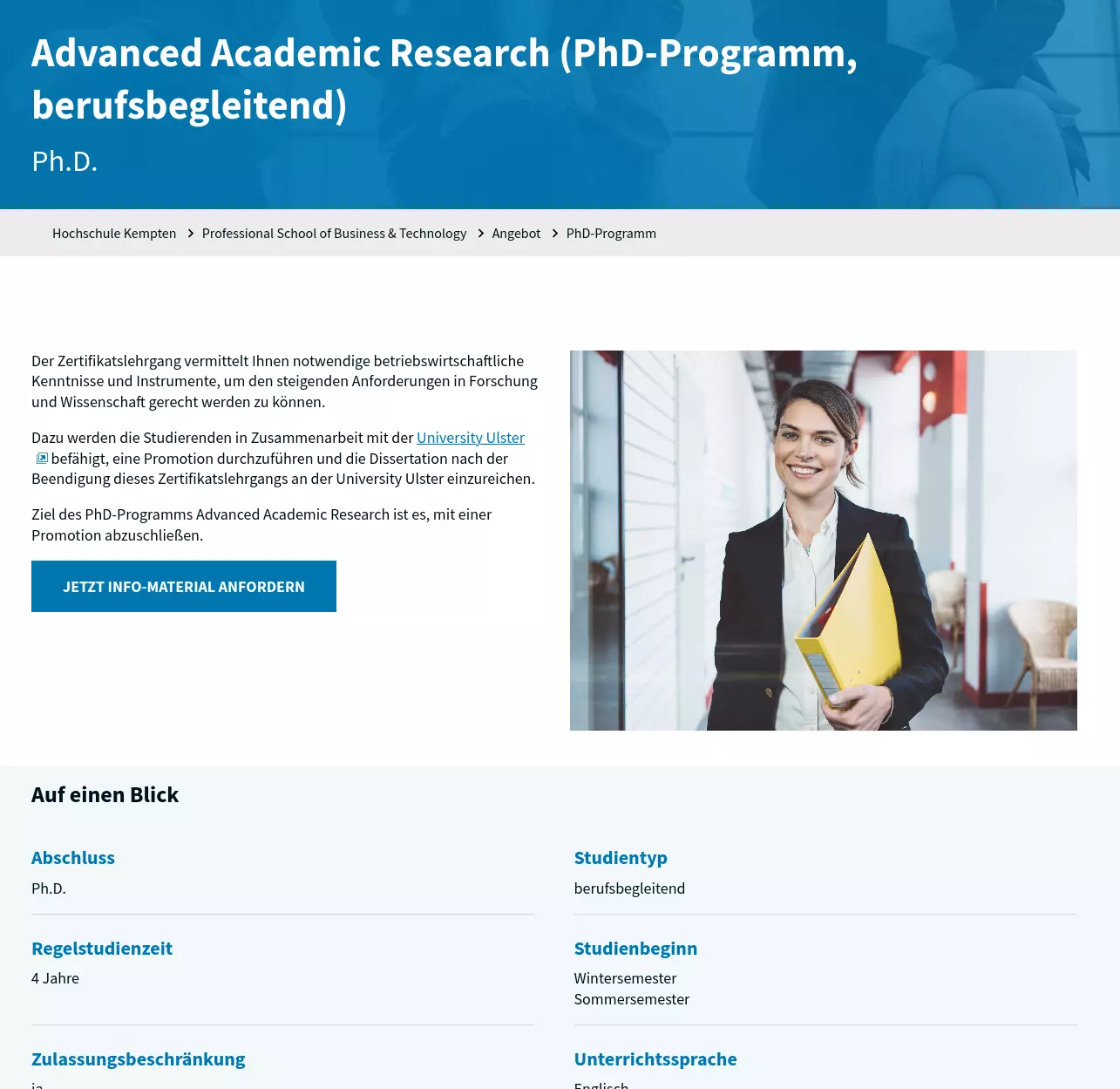


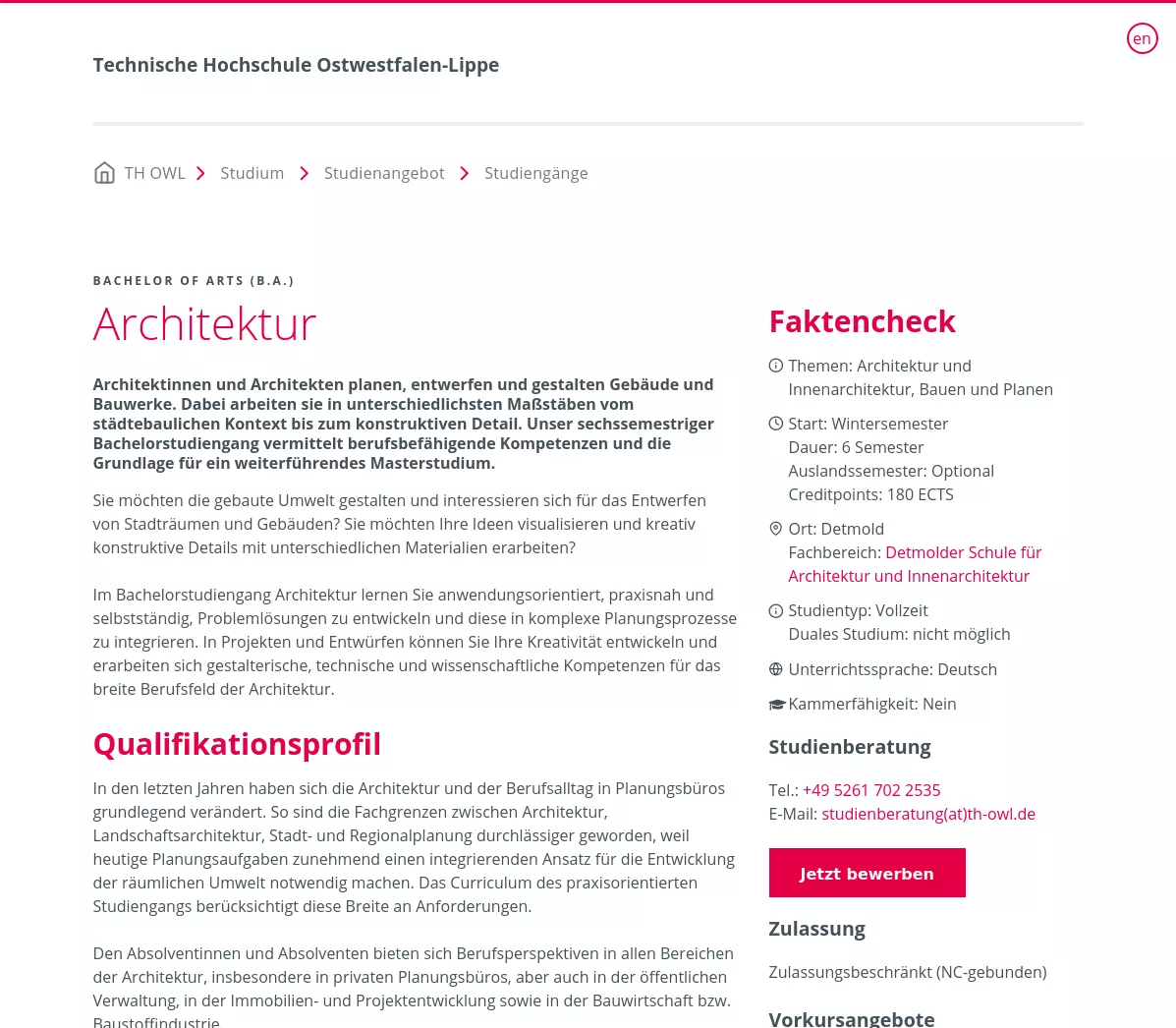

All details about the development status of this extension for TYPO3 12 can be found on our EAP page.
18.520 downloads over packagist.org / 3.098 downloads over TYPO3 extension repository
| Version | Comment | Date | Link |
|---|---|---|---|
| 12.0.0 | Update to packagist.org only (Not available in TYPO3 extension repository) | 2025-02-10 | https://packagist.org/packages/in2code/in2studyfinder#12.0.0 |
| 10.0.2 | Update to packagist.org only (Not available in TYPO3 extension repository) | 2024-10-29 | https://packagist.org/packages/in2code/in2studyfinder#10.0.2 |
| 7.3.1 | New release of version 7.3.1 - see details, changelog and documentation on https://github.com/in2code-de/in2studyfinder | 2024-09-26 | https://packagist.org/packages/in2code/in2studyfinder#7.3.1 |
| 10.0.1 | New release of version 10.0.1 - see details, changelog and documentation on https://github.com/in2code-de/in2studyfinder | 2024-03-22 | https://packagist.org/packages/in2code/in2studyfinder#10.0.1 |
| 11.0.1 | New release of version 11.0.1 - see details, changelog and documentation on https://github.com/in2code-de/in2studyfinder | 2023-12-28 | https://packagist.org/packages/in2code/in2studyfinder#11.0.1 |
| 11.0.0 | Update to packagist.org only (Not available in TYPO3 extension repository) | 2023-11-24 | https://packagist.org/packages/in2code/in2studyfinder#11.0.0 |
List of master's and bachelor's degree programs for colleges and universities